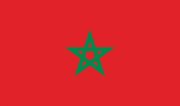
In 2016, we submitted to the UN Mechanisms 9 communications regarding 7 individuals.

MOROCCO
 Our Concerns
Our Concerns
- Human rights violation in counterterrorism operations and the use of coerced confessions, unfair trials, and arbitrary detention in the wake of the 2003 terrorists attacks;
- Absence of investigation in cases of torture and resulting impunity of perpetrators;
- Lack of independence of the judiciary and the National Human Rights Commission;
- Violations of the right to freedom of expression and reprisals against journalists and human rights defenders;
- Violation of the right to peaceful assembly and the excessive and disproportionate use of force by the authorities to disperse peaceful gatherings.
 Recommendations
Recommendations
- Implement a revision mechanism and release individuals who are arbitrarily detained following unfair trials;
- Ensure that impartial, independent, and thorough investigations are carried out in cases of torture and other serious human rights violations and ensure that perpetrators are brought to justice;
- Reform the penitentiary administration in order to ensure the independence of medical practitioners and forensic experts entrusted with detainees’ health;
- Reform the Penal Code and remove all dispositions which restrict the right to freedom of opinion and expression and put an end to reprisals against journalists and human rights defenders;
- Ensure respect for the right to peaceful assembly by avoiding excessive use of force.
 Upcoming
Upcoming
- 2 May 2017: Third Universal Periodic Review of Morocco before the Human Rights Council;
- 14 June 2017: 2-year delay in the submission of Morocco’s initial report to the Committee on Enforced Disappearances;
- 2 November 2017: Submission of Morocco’s follow-up report to the Human Rights Committee;
- 25 November 2017: 2-year delay in the submission of Morocco’s fifth periodic report to the Committee against Torture.
The parliamentary elections held in Morocco in October 2016 resulted in the Justice and Development Party winning for the second time in a row. In December 2016, Prime Minister Abdelilah Benkirane was still conducting consultations to form a new government, which proved to be a challenging process.
At the legislative level, in 2015, the Minister of Justice submitted a project to reform the Code of Criminal Procedure in order to bring the judicial system in conformity with the 2011 Constitution and Morocco’s international human rights obligations. The draft Code sets out specific conditions to put suspects in police custody, establishes alternatives to detention, and provides for an obligation for the judicial police to conduct interrogations under audio-visual recording. The proposed reform has yet to be adopted. However, on 9 June 2016, the Government Council adopted a new draft Penal Code, which was strongly criticised by some members of the opposition for providing inadequate protection of individual freedoms.
The country continues its “truth and reconciliation” process to address the gross human rights violations committed between 1956 and 1999, a period known as “the years of lead”, during which political opponents were subjected to arbitrary detention, torture, and enforced disappearances. Yet, the same violations were perpetrated after the Casablanca attacks of 2003, especially under the pretext of counterterrorism operations. The authorities have similarly failed to address these violations, as hundreds of individuals continue to be detained arbitrarily.
Lastly, Western Sahara remains a sensitive political issue, in the context of which human rights violations continue to occur. In November 2016, Alkarama sent an individual complaint on behalf of Salaheddine Bassir, a Sahrawi journalist arrested in June 2015 and arbitrarily detained in Laayoune following a conviction exclusively based on a confession obtained under duress. Mr Bassir, journalist for RASD TV – the television channel of the Polisario Front – was arrested following his coverage of a Sahrawi demonstration in Smara during which violent clashes erupted in May 2013. On 24 November 2015, he was sentenced to four years in prison for “conspiracy, violence against police officers in service and degradation of public property”, despite having claimed during the trial that he had been forced to confess under duress.

Persistence of human rights violations in counterterrorism
Anti-Terrorism Law No. 03-03 of 2003, adopted in the wake of the Casablanca attacks, significantly restricts fundamental and fair trial guarantees for individuals arrested and prosecuted on the basis of this legislation. Comprising a vague and broad definition of terrorism, the legislative text does not guarantee the basic right to have access to a lawyer from the onset of an arrest. Currently, the period of police custody without a charge can last as long as 12 days. During this time, individuals are allowed to see a lawyer only once, for a period of 30 minutes and under police supervision, sometimes after having already spent up to six days in detention.
The numerous shortcomings of the Anti-Terrorism Law have led to systematic violations of fundamental rights, including arbitrary arrests, torture, and unfair trials. Such practices are illustrated by the case of Abdelkader Belliraj, who was arrested in Marrakech in 2008. Accused of leading a terrorist network, he was secretly detained for 28 days during which he was severely tortured and forced to sign self-incriminating statements, without being allowed to read them. In July 2009, he was sentenced to life imprisonment after a flawed trial, during which the judge refused to take into considerations the victim’s allegations of torture and secret detention. On 23 August 2016, upon Alkarama’s request, the UN Working Group on Arbitrary Detention (WGAD) issued an Opinion in which it characterised his detention “arbitrary” and called for his immediate release. To date, the Moroccan authorities are yet to implement this decision.
In October 2016, during Morocco’s review by the Human Rights Committee (HRCtee), the UN experts echoed the concerns raised by Alkarama in its shadow report. As such, the HRCtee expressed concern over the situation of victims of arbitrarily detention, as well as over the broad definition of terrorist crimes and the excessive length of custody allowed for cases falling under this law.

Obstacles to the prevention of torture and impunity of perpetrators
Despite having ratified both the Convention against Torture and its Optional Protocol (OPCAT), Morocco still demonstrates serious shortcoming with regard to both preventing torture and prosecuting perpetrators thereof.
The establishment of the Equity and Reconciliation Commission in 2004, designed to address serious human rights violations committed during the “years of lead” under the former King Hassan II, did not result in any prompt, impartial and exhaustive investigations. While such a process could have prevented the repetition of past violations, the absence of prosecutions fostered a climate of impunity, with cases of torture reappearing in the years that followed. Similarly, none of cases of torture brought to the attention of the judiciary in recent years have led to investigations, while hundreds of prisoners remain in detention on the basis of evidence obtained under duress.
The lack of proper investigations is partly due to the absence of independent medical expertise, which could help establish acts of torture through forensic examination. Physicians presently entrusted with the examination of alleged torture victims are officials of the General Delegation of Prison Administration and Reintegration, an institution reporting directly to the King and not to the Ministry of Health. As such, their independence and credibility is clearly undermined. The absence of an independent and impartial forensic examination proved to be detrimental to the right to truth of Adnane Rahali’s family. Adnane, a young Sahrawi student at the Agadir law school and a member of the Sahrawi student union, disappeared on 17 December 2015. Fearing that he had been abducted by security forces, his family contacted Alkarama, which in turn submitted an urgent appeal to the Committee on Enforced Disappearances. A few months later, on 2 May 2016, Adnane was found dead in the vicinity of the university. The examination conducted by the authorities fell short of basic standards on forensic examination, lacked rudimentary information such as the time of death, and the description of the state of his body was cursory. The authorities denied the family’s request for a counter-examination and pressured them to bury the victim as soon as the first autopsy was conducted, strengthening the suspicions of the family on the responsibility of State agents in his death.
The prevention of torture is equally problematic in the country. Medical examinations of arrested individuals – which should be conducted automatically to prevent any mistreatment or abuse – are habitually not carried out, and the few expertise ordered are not made by independent medical capacity. Prevention of torture is not only a challenge during early hours of police custody but also during further stages of detention. In compliance with the OPCAT, to which Morocco acceded in 2014, a national prevention mechanism had to be established and given the necessary independence and prerogatives to visit and monitor all places of detention without restriction, so as to ensure that no torture or mistreatment is being perpetrated. In 2016, the authorities announced that this role would be assumed by its national human rights institution (NHRI) – the National Human Rights Council (NHRC) – despite concerns raised by local NGOs on its lack of independence and effective action taken when seized of cases of torture. In 2016, the NHRC was reviewed by the Sub-Committee on Accreditation (SCA) of Global Alliance of National Human Rights Institutions, which decided to renew its status “A”, only granted to fully independent NHRIs, despite the concerns raised by Alkarama in its report to the SCA.
Alkarama also raised serious concerns over the lack of prevention and investigation into acts of torture, as well as the lack of prosecution of perpetrators in its report to the Human Rights Council ahead of Morocco’s Universal Periodic Review, which will be held in May 2017.

MOROCCO’S THIRD REVIEW BY THE HUMAN RIGHTS COMMITTEE
The third periodic review of Morocco by the HRCtee, which took place on 24 and 25 October 2016, was an opportunity to address the many challenges raised by Alkarama in the report it submitted to the UN experts in September 2016.
In its submission, Alkarama addressed numerous issues, ranging from the lack of independence of the judiciary to human rights violations committed in the fight against terrorism, restrictions of freedoms of expression and peaceful assembly, and the lack of investigation and prosecutions following the process initiated by the ERC. Before the review, Alkarama had the opportunity to brief the UN experts on its key concerns.
In its Concluding Observations, the Committee echoed Alkarama’s recommendations, including the fact that the authorities had yet to address past serious violations and to compensate for the damage suffered by victims and their families. They also requested the Moroccan authorities to investigate allegations of torture and expressed concern over the fact that victims of torture who publicly denounce such abuses often face further threats and reprisals. HRCtee members also called upon the State to bring its Anti-Terrorism Law in line with international standards, especially in terms of procedural guarantees.
Furthermore, Alkarama drew the attention of the UN experts to the persistence of undue restrictions of fundamental rights of activists, human rights defenders, and journalists, hindering their legitimate and peaceful activities. For instance, despite a recent revision of the Press Code, several press offences remain punishable by imprisonment. The Committee subsequently recommended that Morocco amend its criminal law to comply with article 19 of the International Covenant for Civil and Political Rights (ICCPR), which guarantees the right to freedom of opinion and expression.
Lastly, Alkarama highlighted the use of excessive force by police during peaceful protests and gatherings. The Committee expressed its concern over the excessive and disproportionate use of force to disperse unauthorised peaceful meetings, as well as over the fact that public gatherings are subject to prior notification, which is impossible to obtain in some cases. The HRCtee stated that Morocco should ensure that the Law on Peaceful Demonstrations is applied in accordance with the provisions of the ICCPR and that the exercise of this right is not subject to undue restrictions.